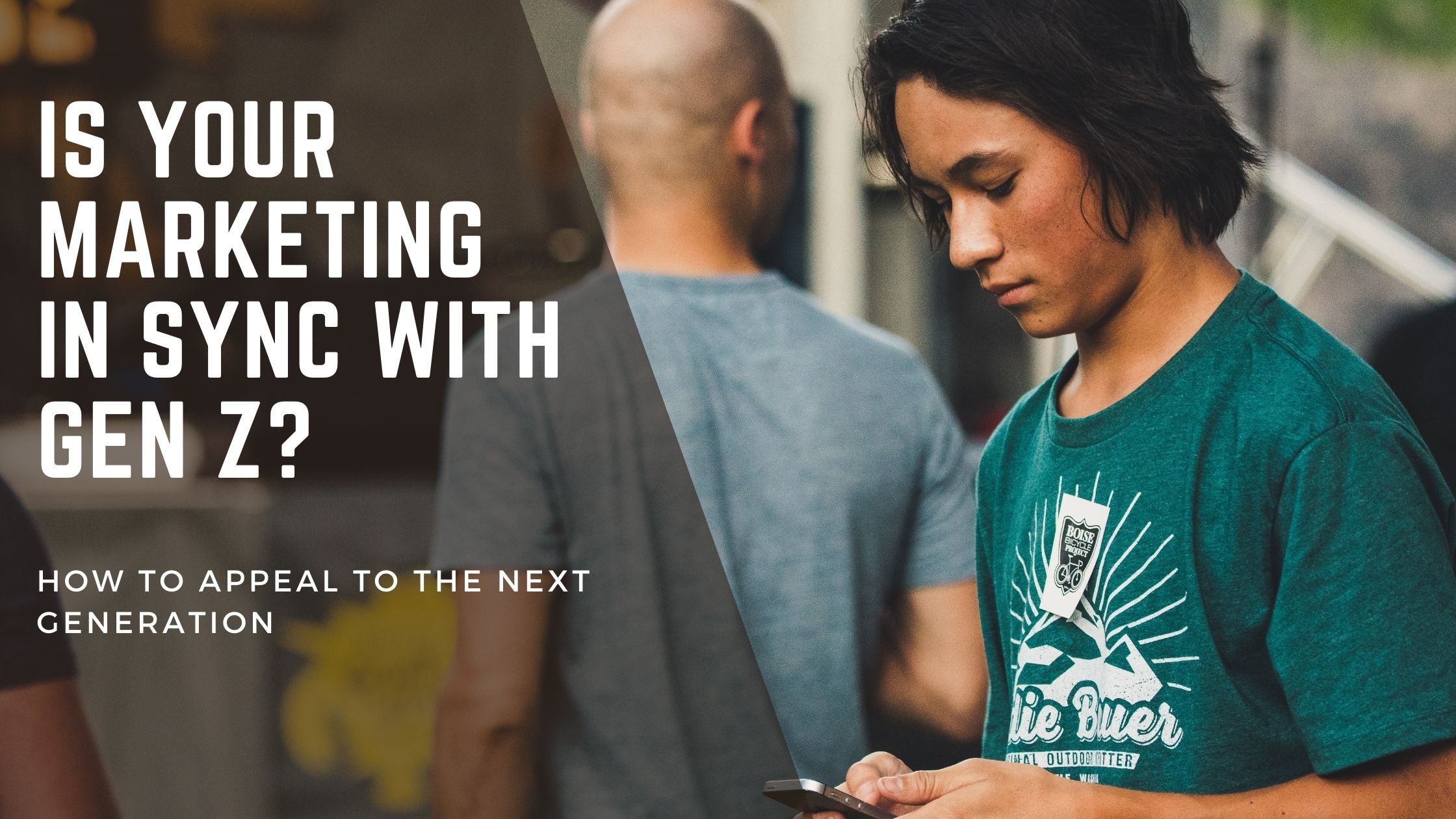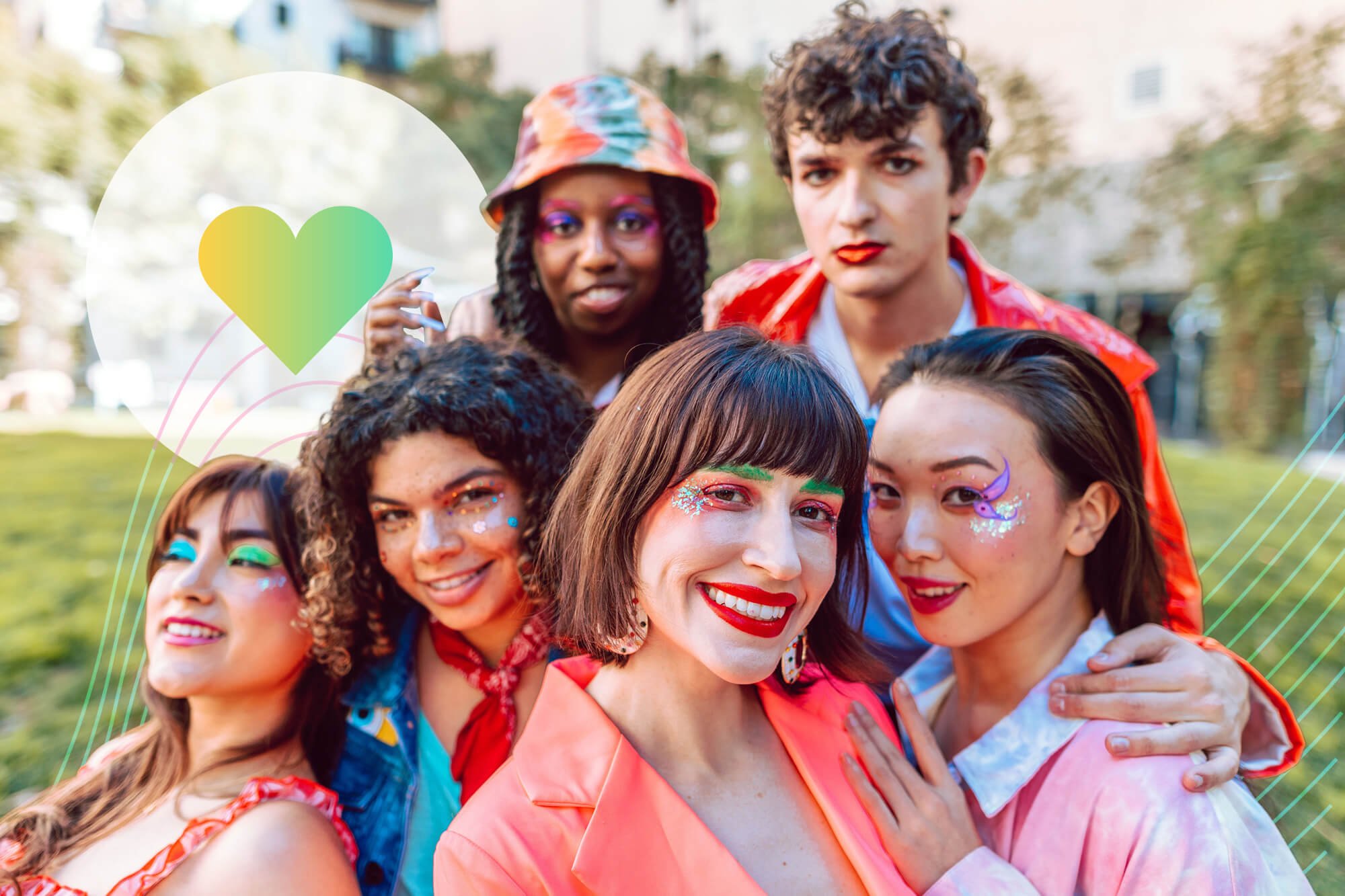Gen Z Relates To Brands Differently Than Older Generations and They're Poised to Disrupt Global Markets
It's no secret that social media has had a profound impact on the way brands and consumers interact with each other. Gen Z (born between 1995 and 2010) relates to brands differently than older generations. They're more trusting of brands and more likely to make purchases based on social media referrals. As a result, Gen Z is poised to disrupt global markets in ways we've never seen before.
What's driving this change? Social media, of course. Gen Z grew up with social media and they're more comfortable sharing personal information online than older generations. They're also more likely to follow brands on social media and to make purchases based on recommendations from friends and influencers.
Global Income for Gen Z
By 2031, Generation Z's income will rise 5X (500 per cent). Generation Z's earnings will exceed that of Millennials by 2031 as a result of this significant increase in earnings.
According to experts, Generation Z's income will account for one-quarter of all global income by the middle of this century. This would result in Generation Z generating $2 trillion in worldwide profits if current patterns continue.
What does this mean for the market?
It means that to stay relevant, brands need to start thinking about how to appeal to Gen Z. They need to focus on creating content that is authentic and relatable, as well as experiences that are memorable and shareable.
In short, brands need to start thinking like Gen Z if they want to stay ahead of the curve.
How Can Brands Reach Gen Z?
There are a few key ways to reach Generation Z:
- Social media is the most effective way to reach them, followed by television, and then print media.
- Traditional marketing techniques are not as effective with this generation.
- They are more likely to trust peer recommendations than traditional advertising.
Influence of GenZ on family spending
The top 25 best-liked brands among Generation Z consumers
Gen Z has undoubtedly been influenced by technology and corporate presence throughout their childhood. The introduction of social media and immersive technologies has conditioned them to appreciate technology companies with clear practicality or social preference. Here are the top 25 brands:
GenZ’s most loved brands
The Next Generation of Consumers: Disruptive and Diverse
Generation Z is a group of people who were born between 1995 and 2010, thus it ranges from the age of 10 to 22. This generation comprises more than 2 billion young people across the world–nearly 40% of all U.S. consumers–making it the largest population in history.
In terms of racial variety, Gen Z is more diverse than any previous generation. More than half of Generation Z (54%) is nonwhite, compared to only 3% for the baby boomers and 15% for the silent generation. Immigration also appears to be linked.
At least one immigrant parent is present in 22% of Gen Z households, compared to 14% of millennial households. One of the most startling facts, however, is how well-suited Gen Z is for entering new markets.
The bulk of Generation Z resides in developing nations, preparing these youngsters to both influence and profit from new ideas. Though 20% of Generation Z dwells in India, which has seen tremendous development in its marketplaces over the past decades, this proportion is misleading because it does not take into account the majority of Gen Zers who live outside India.
The number of LGBTQ+ individuals is on the rise, and diversity metrics go far beyond race and culture. One in five Generation Z-ers identifies as LGBT+, which is a growth of nearly 100 per cent when compared to previous generations. Furthermore, compared to Millennials, 35% of Generation Z members personally know someone who prefers gender-neutral pronouns.
Gen Z is also on track to have the highest level of education, with more than half (57%) enrolling in two- or four-year institutions. More than half (57 per cent) live with a parent who has earned a bachelor's degree or higher, and just over half of them (55%) live in an area where college graduates out
With all of this in mind, it’s no wonder that Gen Z has been called the most diverse, tech-savvy, and entrepreneurial generation yet. And as they begin to enter the workforce and establish themselves financially, we can expect them to have a profound impact on global markets.
GenZ influence the values of the brands
Gen Z is looking for companies that effectively project the correct fundamental beliefs, and a brand that successfully communicates these values will earn a favourable reaction from them.
Sustainable business practices: 92%
Affordability: 91%
Ethical business practices: 90%
Inclusivity: 87%
Overall shared principles: 86%
These brand values may have an impact on Gen Z's purchasing decisions.
Sustainability
For example, a sustainable brand might be favoured by those who are looking to reduce their environmental footprint. An affordable brand might be chosen by someone who is value-conscious or working with a tight budget. And an inclusive brand could be appealing to someone who is exploring their identity and wants to feel represented.
Gen Z will go above and beyond to promote firms that they perceive as being environmentally conscious.
More than any other generation, 73 per cent of Gen Z buyers were ready to pay more for sustainable goods. For a sustainably made product, 54 per cent of respondents said they would pay more than a 10% premium.
According to a recent survey, 24% of respondents said they consider the environmental consequences of a firm before purchasing.
Affordability
Even though they are willing to spend more on brands that reflect their values, affordability is still a top concern for Generation Z. Many members of this generation are saddled with student loan debt and uncertain job prospects, so they are looking for ways to stretch their dollars.
Ethics
On the other hand, Gen Z appears to be highly committed to punishing companies that they consider unethical. A huge proportion (80%) will refuse to purchase items from firms involved in issues. Fifty-six per cent will also take their business elsewhere if a company does not reflect their values.
Furthermore, if a business contains any of these ethical concerns, Gen Z will actively cease buying from them and spread criticism about them:
Macho: 81%
Racist: 79%
Homophobic: 76%
Many Gen Zers will abandon brands with these ethical shortcomings, and they may experience active resistance or protest.
Inclusion
A majority of Generation Z (55%) values inclusivity—51% of students want companies to support wider inclusivity initiatives, even if less important than ethics and sustainability.
As a result, 49% of consumers would buy from a company with more inclusive marketing.
While 42% of millennials desire more diverse casting and imagery, 51% of Gen Z-ers believe it's necessary. While 44% of millennials want greater inclusivity in leadership positions, a majority (53%) believe it is essential.
When it comes to style, the difference between what's stylish and what's not is much more apparent. When you look at fashion from a sociological perspective, the numbers shift dramatically in favour of an even greater divide.
87% of Generation Z believes strongly in gender equality and inclusion in the fashion industry.
65% of them say that brands may enhance the online shopping experience by allowing consumers to look for "gender-neutral" items without being forced to start with "men's" or "women's."
59% of them believe that non-binary gender options should be available on websites and social networking sites, according to a study from GfK, compared with less than half of Millennials.
Digital campfires
Mobile first marketing for GenZ - Digital Campfires
In the United States, 48 per cent of teens are online "constantly or almost constantly," spending more than 10 hours a day in front of their mobile devices. But where are they investing all that time?
It is most likely not where you would expect it to be. Younger audiences began to withdraw from large social media sites in 2020, instead of clustering around smaller "digital campfires." To put it another way, Gen Z regards online social networking in the same manner as previous generations do local shows and events.
They wait for a social media event to match their preferences, and then they join in. The following cultural events were the best examples of these "digital campfires" that helped create this fashion:
5 concerts by hip-hop artist Travis Scott inside the game Fortnite in April were attended by more than 27 million players.
A 2-day November performance from rapper Lil Nas X on the gaming platform Roblox garnered more than 33 million views.
More than 400,000 users watched a live stream of Rep. Alexandria Ocasio-Cortez (D-NY) playing the video game Among Us on Twitch in October.
What are the favourite platforms of GenZ?
Millennials and Gen Z are more likely to spend time on alternative platforms than on the world's most popular ones. So, what are they using? These five platforms have been their main preferences:
TikTok
Fortnite
Roblox
Discord
Twitch.
Gen Z's usage of these platforms is nothing short of voracious, with their behaviour patterns surrounding the use of such technology is virtually identical:
66% of Gen Z use Instagram — vs 40% of Millennials.
85% of Gen Zers visit YouTube more than any other social site.
Gen Zers are 2X as likely as Millennials to use Snapchat.
20% of Gen Zers spend 5+ hours per day on TikTok alone.
Close to 80% use Discord for non-gaming or a combination of gaming and non-gaming content.
Another interesting statistic on the issue shows that Generation Z is actively grooming social media ads to see more of what they like. Specifically, 46% of college students deliberately indicate, comment on, or share material to “train the algorithms” to provide them with content that they desire. In other words, they are becoming more and more media-literate, and they are using this knowledge to better their online experience.
This is a huge shift in how we think about marketing, and it has drastic implications for the future. It seems that Gen Z is poised to disrupt not only the specific industry but global markets as a whole.
What does this mean for brands?
This means that companies and marketers will have to adapt their strategies to better target Generation Z. Social media will continue to be a powerful tool, but it must be used in a way that is authentic and engaging. Traditional marketing techniques will no longer suffice; instead, companies must focus on developing creative content that speaks to the interests of Gen Z.
What does this mean for the future?
Only time will tell what exactly Generation Z's impact on the world will be. But one thing is certain: they are a force to be reckoned with, and they are here to stay. So brands must adapt or risk being left behind. Are you ready for the challenge?
With the newest platform that provides a secure environment for Generation Z, Spotlite is here to help you overcome that obstacle.
We would love to hear your thoughts on this topic in the comments below. Thank you for reading!
References:






